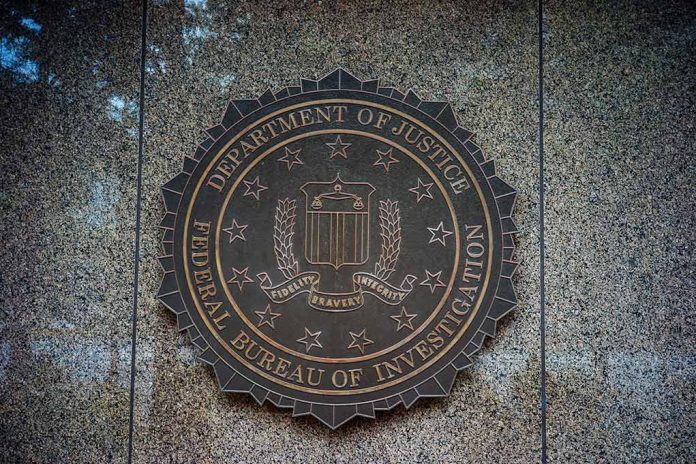
The unexpected resignation of FBI Director Christopher Wray during a fraught political climate has stirred concerns over the agency’s future.
At a Glance
- Christopher Wray resigns abruptly, almost three years before the end of his term.
- Tensions with Donald Trump complicated Wray’s tenure, particularly after the Mar-a-Lago operation.
- Kash Patel’s nomination as Wray’s successor sparks concern about politicization within the FBI.
- Persistent threats from China and domestic terrorism underscore the importance of stable leadership in the FBI.
Resignation Sparks Uncertainty
FBI Director Christopher Wray’s resignation comes at a critical juncture, raising questions about the FBI’s leadership stability amid escalating national security threats. Wray, appointed by President Trump in 2017, had a contentious relationship with him, especially in the aftermath of the FBI’s search of Mar-a-Lago. His decision to step down stems from the desire to prevent disruptions within the bureau during a possible second Trump administration.
In a letter to the agency, Wray acknowledged the deteriorating relationship with Trump, highlighting national security risks like China’s influence and internal terrorism. His resignation has drawn parallels to the dismissal of former FBI Director Jim Comey, who was similarly removed amidst political rivalry. Concerns loom over the appointment of Kash Patel, a Trump loyalist, as Wray’s successor, potentially intensifying the debate around the politicization of federal law enforcement agencies.
FBI Director Christopher Wray says he will resign before Trump takes office https://t.co/zKWc4tqYlh
— Matthew Levitt (@Levitt_Matt) December 11, 2024
Implications for the Rule of Law
The discussion regarding Wray’s departure is rife with apprehension about the integrity of the rule of law, drawing comparisons to Comey’s firing under similar circumstances. As noted in Susan Hennessey’s commentary, “If Trump chooses to replace Comey with a sycophantic yes-man, or if he permits Comey to resign over law or principle, that will be a clear bellwether to both the national security and civil libertarian communities that things are going terribly wrong.”
Fears grow that Patel’s nomination could usher in a new era where FBI leadership becomes a revolving door based on political allegiance. John C. Richter emphasizes, “We are now in a position in which no F.B.I. director may be expected to serve for 10 years, and every time a new president comes in, that new president is likely to signal that the director will be replaced.” This potential shift in tradition could impact the FBI’s nonpartisan stance, affecting its mission to uphold justice impartially.
Maintaining Stability in a Politicized Environment
Throughout his tenure, Christopher Wray maintained a focus on national security, successfully recruiting and retaining agents and thwarting numerous threats. However, the political environment’s volatility emphasizes the need for a non-partisan FBI leadership to ensure the agency’s primary objective remains unaffected. Despite the challenges, Wray reaffirmed his dedication, stating, “Our job at the FBI is to follow the facts wherever they lead, no matter who likes it.”
In this critical transition, Republican senators hold the power to uphold the integrity of the nomination process, ensuring that the FBI director position remains beyond political influence. Wray’s decision underscores the urgent need for courage among political leaders to prevent the agency from being used as a tool against political adversaries, echoing the vision of the Constitution’s framers. With Wray’s exit, the FBI braces for potential changes that could redefine its role in upholding justice in America.
Sources:
- The Situation: Chris Wray, Dead Man Walking | Lawfare
- Why Christopher Wray’s Resignation May Signal a Shift in FBI Tradition – The New York Times
- FBI Director Wray reveals why he is resigning during ‘such a dangerous time’ – DNyuz







